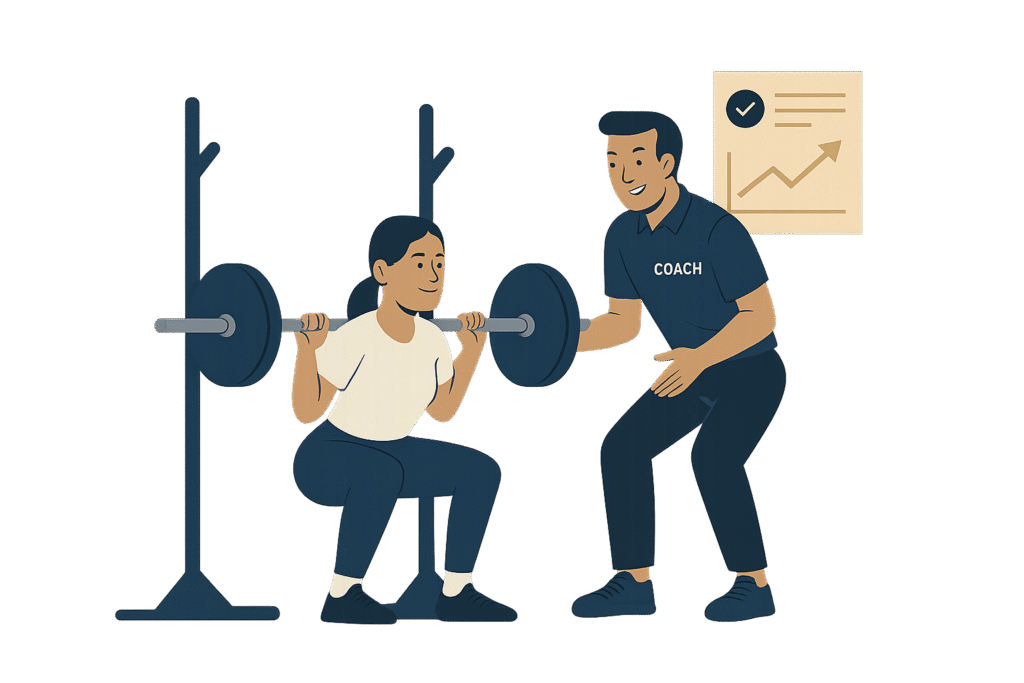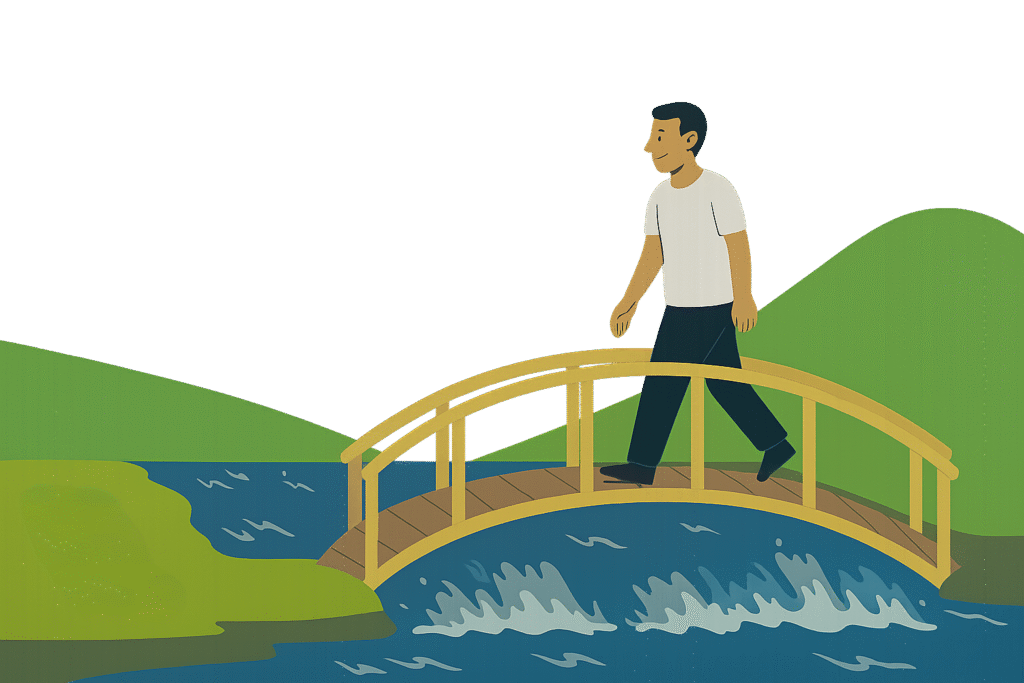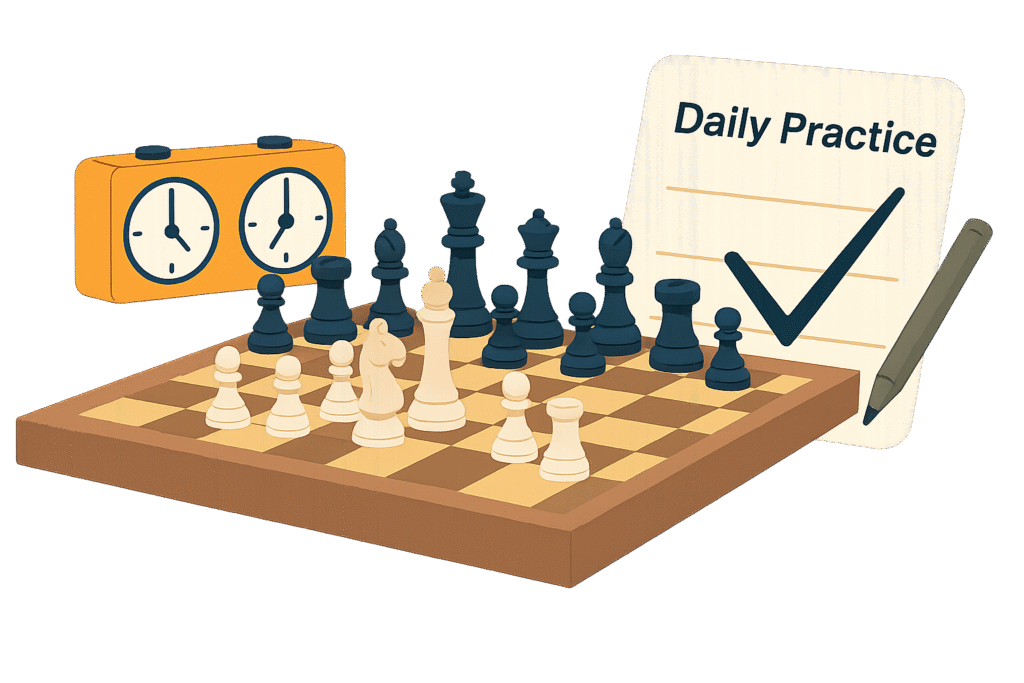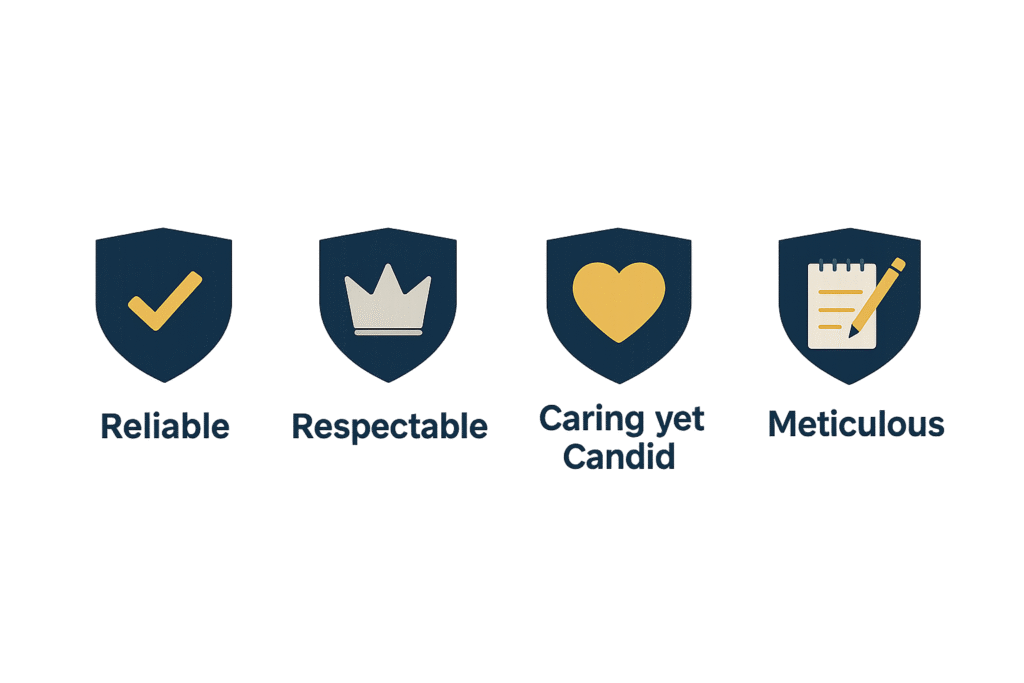What do one-on-one tutoring, line-managing a team, and working with a gym coach have in common?
At first glance, learning algebra, shipping projects, or nailing a perfect dead-lift form all look like different worlds. But without many noticing, an invisible thread runs through every scenario: someone is watching, expecting, and following up. That quiet pressure is the essence of an accountability partnership.
The Invisible Ingredient
Your tutor’s main job is teaching the subject. Your manager’s is steering the company. Your coach’s is programming workouts and nutrition. Yet showing up matters because another human will notice if you don’t.
Tell your coach, “I’m not in the mood”? Unlikely. Skip homework when you know the tutor will test you? Rare. The external expectation nudges you to act even when motivation dips. We might not realize but many of us welcome that nudge. When another person lays out the next steps and goals, decision fatigue fades, the path looks clearer, and a slice of the responsibility lifts off our own shoulders.

We can debate how much of our compliance we can truly attribute to basic social dynamics and expectation pressure, yet the instant someone you respect is waiting, a sizable share of the work happens for precisely that reason.
Add a few more examples and the pattern becomes clearer. Think about:
- Entrepreneurs who make faster progress after pairing up in a mastermind.
- Writers who hit word‑count targets when they join a weekly critique group.
- Music students who practise more consistently once they pay for private lessons.
In each case, a human checkpoint transforms “I should” into “I did”.
So… What Exactly Does Accountability Mean?
Accountability means making your promises visible and agreeing to be answerable for them. In practice you set clear expectations, track your progress, and accept feedback or consequences. It is social by nature: the standards of your group shape what feels normal, and when someone you respect will see your effort, you are more likely to follow through.
An accountability partnership takes that idea and makes it deliberate: two people agree to support, monitor, and challenge each other’s progress toward specific goals. It sits somewhere between friendship and formal coaching, where the participants agree to:
- Set clear, time-bound goals.
- Share progress (and stumbles) on a fixed schedule.
- Offer non-judgmental feedback and strategic tweaks.
- Celebrate wins and reset quickly after misses.

Think of motivation as a river whose depth changes every day. When the water is low, a quick jump of willpower gets you across. When it rises, the same jump falls short. An accountability partnership sets a bridge that stays put whatever the water does, so you can cross the river even on low-motivation days.
Unlike casual “check in soon” promises, an accountability partnership runs on explicit deadlines and meeting cadences. Services like AccountaPartner, for instance, package these principles into recurring check‑in calls plus a personalised task tracker, so you gain all the benefits of external accountability without begging friends or colleagues for favours.
Why External Accountability Works When Willpower Doesn’t
“You are the average of the five people you spend the most time with.” — Jim Rohn
Whether the “five” is magic, marketing flair, or simply the number of fingers on one hand hardly matters. Pick three close allies or ten, decades of behavioural science show we absorb the beliefs and standards of our reference group. Surround yourself with binge‑watchers and popcorn will feel like a reasonable dinner. Spend time with marathon runners and a pre‑breakfast 10 k suddenly counts as a warm‑up. In the broadest sense, everybody around you is already an accountability partner. Bold claim, but hard to deny once you notice the pull.
The people around us set the standard. They decide what feels “normal” and we quietly adjust to match that baseline. Even those of us who insist we don’t care about others’ opinions still land somewhere on a spectrum: some feel the pull strongly, others lightly. The more we care, the harder accountability nudges us. But the dial never drops to zero for anyone.
A striking historical example is the Curie family, whose dinner‑table conversations about radium and x‑rays normalised world‑class science. Between Marie, Pierre, their daughter Irène and son‑in‑law Frédéric, the immediate family collected five Nobel Prizes, proving that an environment rich in high standards can pull everyone upward.

A modern parallel comes from the world of chess: the Polgár sisters Susan, Sofia, and Judit were the focus of an educational experiment by their father, László Polgár. Homeschooled and immersed in chess from the age of three, the siblings’ daily practice sessions, shared targets, and mutual feedback propelled all three to the top tier of competitive chess. This culminated in Judit becoming the highest‑rated female player in history to this date. The built‑in family accountability meant skipping study was simply not an option.
Beliefs Drive Behavior
Why do beliefs control our actions? The brain hates wasted effort. If it judges a goal impossible it conserves energy and you never begin. If it sounds impossible, why even bother? When it believes progress is possible it releases focus and willpower.
As outlined in the Stanford Teaching Commons summary of her work, psychologist Carol Dweck captures this divide with the growth mindset and the fixed mindset. Growth-oriented, empowering beliefs say, “With practice and feedback I can improve”. Fixed, limiting beliefs insist, “Ability is set so effort is pointless”.
In this sense, Jim Rohn’s idea that we become the average of the people around us drives the point home even more. We do not simply copy behaviours. We absorb our peers’ beliefs.
An accountability partner is a practical way to choose that influence. Without blind optimism, they reinforce your conviction that a goal can succeed. Why? Because they have seen similar transitions before and hold evidence that change is possible with focused support.
Accountability Partnership in 5 Steps
Below is a blueprint you can copy today. It reflects what we have tested across hundreds of AccountaPartner sessions, but every step is easy to scale up or down.
- Kick‑off alignment. Map the north‑star goal, slice it into milestones, and agree on what “done” means.
- Choose your baseline cadence. Meet at least once a week to keep visibility high and pivots easy.
- Match rhythm to the work
- Daily 5‑minute pop‑ins (Mon–Fri): Great for predictable repeats such as logging meals, contacting leads, or reviewing flashcards.
- Weekly 30‑minute strategy sessions: Ideal when goals shift: product launches, course creation, or sales planning. Define new goals, brainstorm blockers, and set the next sprint.
- These templates are starting points, not rules. Some clients track granular tasks daily and meet for a longer weekly review, others reverse it.
- Run a high‑impact check‑in
- Look back. Did you ship what you promised? Note wins, slips, and root causes without shame.
- Look ahead. Pick one to three priorities and set a deadline before the next call.
- Start together. If convenient, spend the last bit launching the toughest item right on the call. Motivation science shows the biggest barrier is often the first minute. Once you begin, follow‑through feels easier. Breaking the seal turns “I’ll do it later” into “Already in motion”.
- Keep tweaking. If energy flags or life changes, adjust cadence before motivation dies. The point is momentum, not perfection.

Choosing the Right Partner (or Service)
Not all accountability is created equal. Whether you’re picking a friend, a coach, or a paid service, look for these traits:
- Reliable. They attend every check‑in. A steady beginner beats a flaky genius.
- Respectable. You value their opinion and, ideally, admire their own pursuit of goals.
- Caring yet Candid. They genuinely want you to win and are willing to critique behaviour, not character.
- Meticulous. They take notes and remember commitments so nothing slips.
Yes, There Are Requirements for You Too
You didn’t think the rules applied only to your accountability partner, did you? To make the relationship productive, we identified 3 key qualities that you need to show up with:
- Ambition. You genuinely want more: better grades, stronger lifts, a thriving side hustle. Accountability can amplify momentum, not create it from zero.
- Coachability. Be open to feedback, willing to test tweaks, ready to park your ego. Progress often hides behind a suggestion you didn’t expect.
- Honesty. Transparent updates on wins, misses, and excuses. If the data isn’t real, the partnership can’t steer you anywhere useful.
Bring this trio to every check-in and your accountability partner has something powerful to work with: a motivated, coachable, truthful collaborator.
When to Level-Up With Professional Help
Friend-based partnerships work until life intrudes: vacations, new jobs, energy mismatches. A professional service like AccountaPartner guarantees consistency: same slot, trained facilitator, and a battle-tested tracking system. You focus on the work, we handle the scaffolding.
System Beats Willpower
Willpower is fragile, systems endure. An accountability partnership is the simplest way to engineer an environment that turns intention into action, creating social gravity that lifts everyone from Nobel-winning families to first-time gym-goers. If you’ve stalled on a goal, don’t double the caffeine. Double the people paying attention. Your future self will thank you. Show up, speak your commitment out loud, and let the simple fact of being seen carry you to the finish line.



